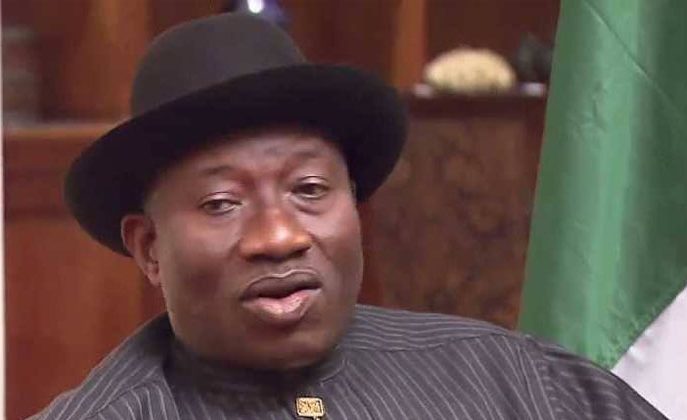By
Umar Ardo, Ph.D
As a Historian, I am familiar with History’s ways of repeating itself, often to the disadvantage of non-historians who do not know the discipline and therefore do not learn from its lessons. In the current Nigeria’s political milieu, the nudging of former President Goodluck Jonathan to return to power by contesting the 2027 presidential elections bears an uncanny resemblance to the futile political gamble of most former presidents in the United States who attempted to make a comeback after losing power. The warning is clear; once a leader is rejected at the ballot box, any attempt to later make a comeback rarely ends in success – it usually ends in failure!


2. History teaches us that comebacks in democratic politics are rare – and even rarer in presidential systems with fixed terms and direct popular votes. From the evidence, only a handful of former leaders in modern times have ever returned to power after being defeated at the ballot box, and nearly all such successful returns occurred under parliamentary systems where coalition manoeuvres and shifting parliamentary seats can quickly change fortunes.
3. In the presidential system, however, especially in the United States from where Nigeria copied its current system, presidential comebacks after defeat are extremely rare. In fact, only two presidents, Grover Cleveland in 1892 and Donald Trump in 2024, ever lost and then successfully returned. Every other one of the many attempts made woefully failed.
4. Here are the main unsuccessful comeback attempts in U.S. history:
i. President Martin Van Buren – Defeated in 1840 by William Henry Harrison, he tried to run again in 1844 but lost the Democratic nomination. He later ran as a third-party candidate under the Free Soil Party in 1848 and won no single state;
ii. President Millard Fillmore – Became president after Zachary Taylor’s death (1850–1853), Fillmore tried a comeback in 1856 under the new American Party, but won only one state – Maryland;
iii. President Ulysses S. Grant – Left office in 1877, then sought a comeback in 1880. He had strong support but ultimately lost the Republican nomination to James Garfield;
iv. President Theodore Roosevelt – After leaving office in 1909, he tried to return in 1912. Denied the Republican nomination, he ran under the new Progressive Party. His candidacy split the Republican votes and handed the election to Woodrow Wilson of the Democratic Party; and
v. President Herbert Hoover – Defeated in 1932 by Franklin Roosevelt, Hoover sought the Republican nomination in 1936 and 1940 but failed both times.
5. The lesson of history is thus made clear – presidential comebacks are almost always doomed! As seen from these few examples in the USA, in presidential democracies like Nigeria’s, once a president is rejected at the polls, the electorate seldom reverses that judgment.
6. Yet, despite this weight of history, some desperate politicians, buoyed by the recent peculiar returns of Donald Trump and John Mahama of Ghana, are trying to lure former President Goodluck Jonathan into contesting again in 2027. Their motives are clearly not national renewal, but self-preservation. They see in Jonathan a potential ticket to advance their own ambitions, not Nigeria’s progress. Having lost re-election in 2015 – the first Nigerian leader to do so – he is now being nudged by these selfish politicians who whisper to him that his return is possible, even inevitable, but their real interest is not Nigeria’s future. It is their own survival in a collapsing political order.
7. Jonathan once earned national and international respect by conceding defeat peacefully in 2015 – a landmark act in Nigeria’s democratic history! A failed comeback bid in 2027 would not only squander that legacy but also risk reducing him to the tragic company of leaders who mistook personal ambition for historical inevitability. Nigeria needs renewal, not recycling. Jonathan should resist the lure of opportunists, preserve his dignity and embrace the nobler role of elder statesman guiding new leadership for the future.


8. I hope Jonathan would not be tempted to walk that dangerous path. The danger for him is twofold if he yields to them. First, like especially President Roosevelt, he risks dividing whatever remains of the opposition, thereby strengthening the ruling party’s hold onto power. In other words, he risks dividing the opposition, weakening the chance of real change and ultimately strengthening the APC’s hold onto power – just as Roosevelt’s Bull Moose adventure split the Republicans and handed victory to Woodrow Wilson in 1912. Second, Jonathan risks squandering the enormous goodwill he still enjoys as a peaceful former leader who once conceded defeat and left office with his personal dignity and integrity intact. Instead of enhancing this legacy, a failed comeback would reduce it to ridicule.
9. For Nigeria, the implications are even greater. The country does not need recycled leadership; it needs fresh ideas and a generational shift to confront collapsed economy, massive poverty, societal insecurity, endemic corruption and the crisis of national unity. A Jonathan comeback will not solve these problems; it will only distract the country from the urgent need for renewal. Roosevelt’s failure in 1912, and those of others, should be Jonathan’s caution in 2027 – presidential democracies rarely reward yesterday’s leaders with tomorrow’s mandate! If Jonathan truly wishes Nigeria and himself well, he would do well to resist the lure of opportunistic politicians and pseudo intellectuals, and embrace the nobler role of elder statesman by engaging in mentoring, guiding and strengthening new leadership rather than recycling his own.

10. In America’s examples of failed comeback lie Jonathan’s warning. Nigeria must look forward, not backward.




